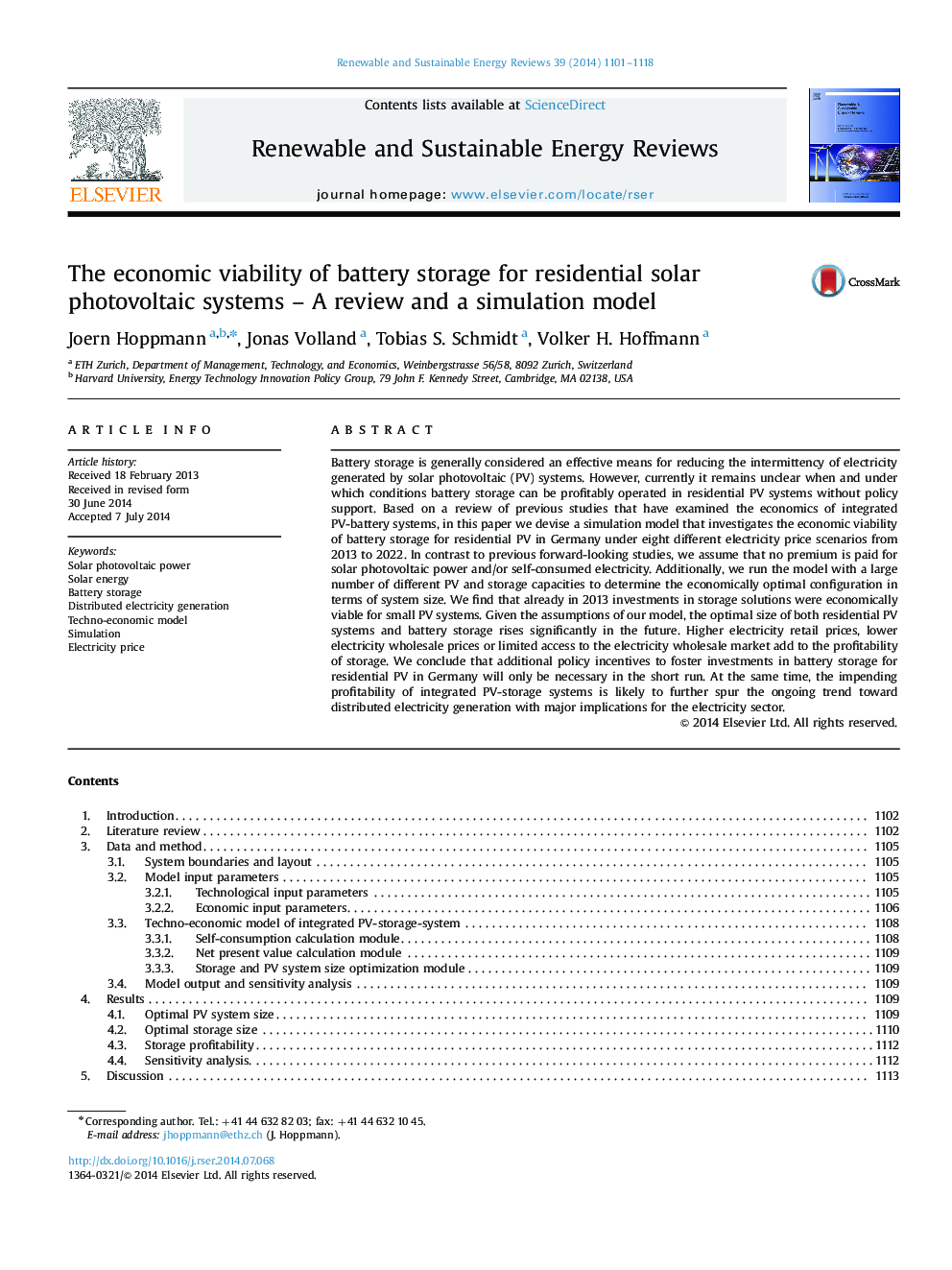| Article ID | Journal | Published Year | Pages | File Type |
|---|---|---|---|---|
| 8119312 | Renewable and Sustainable Energy Reviews | 2014 | 18 Pages |
Abstract
Battery storage is generally considered an effective means for reducing the intermittency of electricity generated by solar photovoltaic (PV) systems. However, currently it remains unclear when and under which conditions battery storage can be profitably operated in residential PV systems without policy support. Based on a review of previous studies that have examined the economics of integrated PV-battery systems, in this paper we devise a simulation model that investigates the economic viability of battery storage for residential PV in Germany under eight different electricity price scenarios from 2013 to 2022. In contrast to previous forward-looking studies, we assume that no premium is paid for solar photovoltaic power and/or self-consumed electricity. Additionally, we run the model with a large number of different PV and storage capacities to determine the economically optimal configuration in terms of system size. We find that already in 2013 investments in storage solutions were economically viable for small PV systems. Given the assumptions of our model, the optimal size of both residential PV systems and battery storage rises significantly in the future. Higher electricity retail prices, lower electricity wholesale prices or limited access to the electricity wholesale market add to the profitability of storage. We conclude that additional policy incentives to foster investments in battery storage for residential PV in Germany will only be necessary in the short run. At the same time, the impending profitability of integrated PV-storage systems is likely to further spur the ongoing trend toward distributed electricity generation with major implications for the electricity sector.
Keywords
Related Topics
Physical Sciences and Engineering
Energy
Renewable Energy, Sustainability and the Environment
Authors
Joern Hoppmann, Jonas Volland, Tobias S. Schmidt, Volker H. Hoffmann,
